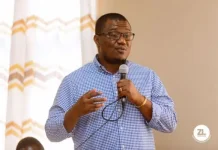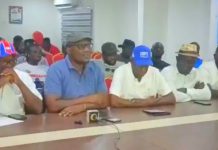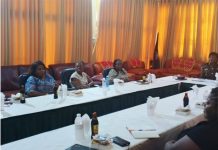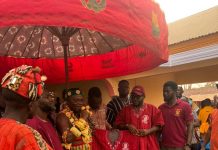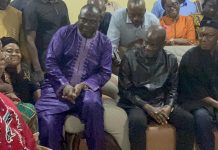Author: Peter Martey Agbeko || APR
Table manners are a universally accepted code of conduct. Among these, one of the most basic rules is that one should not speak with their mouth full.
This advice, often imparted at family dinners and formal gatherings, is meant to convey respect and decorum.
Yet, in Ghanaian society, this adage has taken on a new, metaphorical life—particularly when it comes to holding power to account.
In the years preceding the New Patriotic Party’s (NPP) rise to power in 2017, Ghana witnessed a vibrant chorus of voices from individuals and civil society organisations (CSOs).
These advocates for good governance played the role of society’s moral compass, calling out corruption, exposing inefficiencies, and holding those in power accountable.
Under the National Democratic Congress (NDC), their voices were loud and clear, amplified by street protests, press conferences, and damning reports.
However, since the transition of power, a noticeable quiet has set in. It’s as though those same voices have been silenced—not by legislation or coercion, but by the figurative “full mouths” they now possess. Suddenly, observing table manners has become the unspoken rule.
From Watchdogs to Lapdogs?
The shift has left many wondering: where are the outspoken watchdogs of society? Are the once-principled advocates now seated at tables of influence and opportunity, mouths too full to articulate dissent?
Have the perks and privileges of proximity to power softened the resolve that once fueled their activism?
This silence is particularly puzzling because the challenges have not disappeared. Ghana continues to grapple with economic instability, youth unemployment, environmental degradation, and systemic corruption.
Yet, those who were once quick to organize press conferences and mobilize protests now seem content to observe from the sidelines—or worse, offer hollow endorsements that betray the principles they once championed.
The Consequences of Silence
When the moral gatekeepers abandon their posts, society suffers. Corruption goes unchecked, policies lack scrutiny, and the people lose trust in the institutions meant to protect them.
Civil society’s role is not to cheerlead any government but to remain steadfast in their advocacy for justice and accountability. Silence, in this context, is not neutral—it is complicit.
Moreover, this selective application of outrage risks eroding the credibility of CSOs. It suggests that their activism was less about principles and more about politics.
When the guardians of accountability become partisans, the public becomes disillusioned, and the true losers are ordinary Ghanaians.
Time to Speak Up
Civil society must rediscover its voice. Table manners may be appropriate during dinner, but they have no place in a democracy where silence can perpetuate suffering.
The role of these organizations—and indeed all concerned citizens—is to be impartial arbiters of truth, fearless in their critique regardless of who occupies the seat of power.
Ghana’s history is rich with examples of individuals and groups who refused to remain silent in the face of injustice. It is time for today’s advocates to draw inspiration from that legacy, remembering that their allegiance is not to any political party but to the people they serve.
The Call for Courage
Good governance thrives on accountability. While it may be uncomfortable to “speak with one’s mouth full,” failing to do so risks allowing the rot to fester. Civil society organizations and advocates must rise above the temptations of proximity to power and remember their sacred duty to the nation.
In the end, observing table manners is a choice. The question is, at what cost? If our civil society continues to prioritize decorum over duty, Ghana risks losing the moral courage that has always been its strength. The time to break the silence is now.







